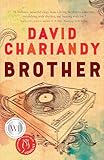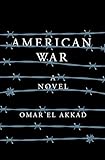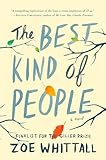I was on book tour for much of the year. And when I tour, I read. I’m not sure how many books I got through exactly, but I read about quantum gravity, a few different translations of Beowulf, microbiology, and cave art. I read Elon Musk’s biography, meaning I can now more accurately predict the size and shape the coming apocalypse. I read many, many novels.
In looking at my read pile, I decided I needed a focus and narrowed in on Canadian books. But I immediately ran into a problem. What makes a book Canadian?
Margaret Atwood published Survival in 1972, a thematic guide to Canadian literature that searched for ways to define our national literature. Back then, American and British novels tended to dominate our bookshelves. Bookstores often had a curious shelf labelled Canadiana, where the local authors were tucked away.
We spent the next few decades searching for reasons to see ourselves as distinct. We often did this by pointing out who we were. When I was growing up in the ’80s, one of my favorite games was to name famous people who were actually Canadian and I still do this—Sandra Oh, Michael J. Fox, Drake, Pamela Anderson, and William Shatner. We hide so easily among others.
Since then, our ideas, our identities, and our writing have all expanded. Canadian literature, or CanLit, has its own hashtag (#canlit), but that’s about the only straightforward thing I can say about it. Now that it undoubtedly exists, we spend our time arguing about what it might be. The central question, as writer Russell Smith asked, “is it a literature that is made here, or set here, or addresses uniquely Canadian themes?” But for many, CanLit also stands for what needs to change. It’s a shorthand for an out-dated colonial point of view, structural racism and sexisim, a lack of diversity and opportunity.
So after thinking it through, I’ve decided why the books on my list are Canadian: They have little or nothing in common. Each is different from the other. There are no similar themes that stand out. The authors have their own identities that are best defined by them. If you asked each author if they are Canadian, I think they would answer yes—but likely with some kind of qualification, caveat, or hyphen. They might include a second citizenship, language, culture, or country. And maybe two or three.
I’m aware that this isn’t exactly a clear definition. I don’t need it to be. And similarly, I don’t think CanLit is a particularly useful term anymore. We’ve grown beyond the need to agonize about what we are. But more, the act of defining artistic work involves creating a boundary. Who gets to draw that literary line? I hope that no person nor group would assume that they have the ability to define our books. I will be wary if they do.
So, here are a few of my favorite novels published this year, written by authors who, when asked if they are Canadian, would probably answer, “yeah, and…,” and start telling a long and complicated and fascinating story about their identity:
The Lonely Hearts Hotel by Heather O’Neill
When I interviewed O’Neill earlier in the year, I confessed to a certain kind of creative jealously. I’d like to say that I’ve since matured, however I’m a writer. Her prose sparkles, her way with the metaphor is unparalleled, and this, her third novel, has an intricate construction. You know when someone folds paper, cuts little holes in it, and—like magic—smooths out a perfect snowflake? Reading it feels like that, except add in some cigarettes, sex, and swearing. O’Neill often writes about Montreal, which in her words is, “totally funny, it’s wry, it’s dirty.” Also a perfect description of this book.
 Brother by David Chariandy
Brother by David Chariandy
A perfectly sculpted novel, each word is placed with a heart full of hip hop. It tells the story of an enduring love between two brothers, Michael and Francis, who live in the suburbs of Toronto (though the T-word is never mentioned). The book gives voice to black and brown men with beautiful and complex emotional lives. As said in The Walrus, the novel shows, “a very different picture than what CanLit usually peddles: comfortable and self-soothing narratives about our supposedly progressive cities.” Brother is already out in Canada. It just won one of our biggest awards, the Writers’ Trust Roger Fiction Prize. It will be out in July.
 American War by Omar El Akkad
American War by Omar El Akkad
A novel that follows the life of Sarat Chestnut, who is six years old, in 2074, when a second civil war breaks out. Set in what used to be the South, it is told from that perspective. I went to the same Canadian university as El Akkad and asked about this choice. He explained that his work as a reporter often took him to the South. He would find himself talking to a certain kind of person, “incredibly hospitable, would give you the shirt off their back. But also deeply tied to some very old traditions, some of them good, some of them terrible, and god help you if you challenge those traditions.” He went on to explain that he was born in Egypt and grew up in the Middle East, “incredibly generous people who are also tied to some very old traditions, and god help you if you challenge those traditions.” In my view, that insight lays the framework for this brilliant book.
 The Best Kind of People by Zoe Whittall
The Best Kind of People by Zoe Whittall
This novel came out in Canada in 2016 and in the U.S. this fall, but in our post-Harvey Weinstein world it feels more timely and urgent than ever. A family saga set in Connecticut, a respected teacher at a prep school is accused of sexual assault. The story follows the people who are closest to him, family and close friends. Without ever getting preachy, it draws an elegant line between rape culture, patriarchy, and privilege. I compared it to The Ice Storm or Ordinary People, but it has more contemporary companions, too, in The Interestings or The Woman Upstairs.
More from A Year in Reading 2017
Don’t miss: A Year in Reading 2016, 2015, 2014, 2013, 2012, 2011, 2010, 2009, 2008, 2007, 2006, 2005









